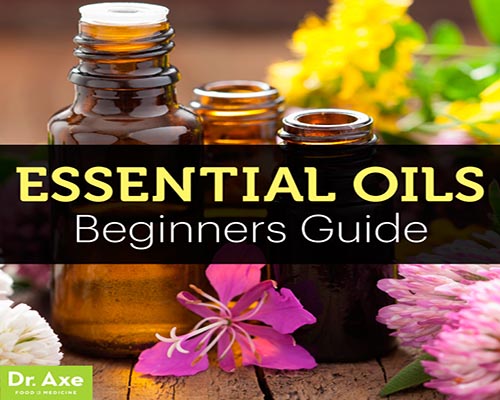Essential oils are organic compounds extracted from plants with tremendous healing properties. Using essential oils for healing purposes is often called aromatherapy which is a holistic treatment seeking to improve physical, mental and emotional health.
For over 5,000 years, many different cultures have used these healing plant oils for a variety of health conditions. They are often used for relaxation, beauty care, home cleaning and most often used as natural medicine.
Just adding some of the most common essential oils like lavender, frankincense, lemon, peppermint and tea tree oil to your natural medicine cabinet can:
- Fight cold and flu symptoms
- Relax your body and soothe sore muscles
- Heal skin conditions
- Alleviate pain
- Balance hormones
- Improve digestion
- Reduce cellulite and wrinkles
- Clean your home
- Used in homemade personal care products
What Are Essential Oils?
Essential oils are extracted directly from the bark, flower, fruit, leaf, seed or root of a plant or tree and just one drop can have powerful health benefits.
They are typically created through the process of distillation which separates the oil and water based compounds of a plant by steaming.
Essential oils are highly concentrated oils that have a strong aroma. By concentrating the oils of these plants you are literally separating the most powerful healing compounds of a plant into a single oil.
For instance, in order to get 1 single 15ml bottle of rose essential oils it take 65 pounds of rose pedals!

These therapeutic oils in plants protect the plant from insects, shield the plant from a harsh environment and help them adapt to their surroundings. By taking essential oils you are harnessing the protective and healing powers of a plant.
Essential oils are composed of very small molecules that can penetrate your cells and some compounds in essential oils can even cross the blood-brain barrier. They differ from fatty oils (like those in vegetables or nuts) that come from large molecules because they cannot penetrate your cells so they are not therapeutic in the same manner.
History of Aromatherapy
Since the use of essential oils is present in many countries, it is difficult to pinpoint where the practice originated. Oils have been used by the Jews, Chinese, Indians, Egyptians, Greeks, and Romans both as cosmetics, perfumes, and for their medicinal purposes. Some cultures even used oils in spiritual rituals.
In 1928, French chemist, René-Maurice Gattefossé used lavender oil to heal a burn on his hand. He then decided to further analyze the properties of lavender oil and how it could be used to treat other types of skin infections, wounds, or burns.
With this the science of aromatherapy was born. Gattefossé’s main goal was to help injured soldiers during World War I. The use of these oils began to spread especially with practitioners of alternative medicine, such as massage therapists and beauticians throughout Europe.
Aromatherapy did not become popular in the United States until the 1980s, when essential oils began to be added to various lotions, candles, or other fragrances.
There are also trained professionals such as aromatherapists, physical therapists, massage therapists, nutritionists or even doctors of natural medicine who use aromatherapy in their practice and are trained in specific uses for essential oils.
Essential Oils Now Used In Medical Hospitals
Aromatherapy has a variety of health benefits and can be used in various settings. It is a great non-invasive way to treat a variety of medical conditions and can be used safely in combination with many other therapies.
Many traditional hospitals like Vanderbilt University Hospital are catching on to the benefits of essential oils and are using them in the treatment of anxiety, depression and infections in hospitalized patients.
A 2009 study found that pre-operative patients who received aromatherapy with lavandin oil were significantly less anxious about their surgery than controls. Other oils such as sandalwood, neroli oil, and lavender oil have also been used in traditional medicine to help patients better manage anxiety.
Certain essential oils have also been used by midwives to help reduce fear and anxiety during childbirth. A 2007 study in the Journal of Alternative and Complementary Medicine suggests that women who used aromatherapy during labor reported less pain overall and were able to use fewer pain medications.
Essential oils can also have antibacterial or anti-fungal benefits used in medical settings. Many oils when massaged on the skin can heal or help treat skin conditions, such as burns, or cuts and scrapes. Others may help boost the immune system, help with insomnia, and aid with digestion.
And essential oils are even being used to fight cancer and there is a plentiful amount of research on frankincense shrinking brain tumors.
Top 15 Essential Oils Health Benefits
Each and every essential oil contains compounds with unique healing and therapeutic benefits. Here are some of the most popular essential oils and how to use them.
- Clove: Anti-bacterial, anti-parasitic and antioxidant protection.
- Cypress: Improves circulation, reduces varicose veins, lifts confidence and can help heal broken bones.
- Eucalyptus: Improves respiratory issues like bronchitis, sinusitis and allergies. Also invigorating and purifies the body.
- Frankincense: Builds immunity, reduces inflammation, heals age spots, supports brain and fights cancer.
- Ginger: Reduces inflammation, supports joints, improves digestion and relieves nausea.
- Grapefruit: Supports metabolism and cellulite reduction. Mix with coconut oil and rub on areas of cellulite or take a few drops internally with water.
- Lavender: Helps with relaxation, improves mood and heals burns and cuts.
- Lemon: Great to use in homemade cleaning products, improves lymph drainage and cleanses the body.
- Myrrh: Natural anti-septic and can prevent or reduce infections. Also, supports beautiful skin, reducing stretch marks and hormone balance.
- Oregano: Powerful anti-microbial properties, can kill fungus and help you kick a cold fast.
- Peppermint: Supports digestion, improves focus, boosts energy, fever reducer, headache and muscle pain relief.
- Rose: Incredible for reducing skin inflammation and great for creating glowing skin. Add a few drops to your facial moisturizer. Also, one of the most valued essential oils in the world at $1000+ for 15ml.
- Rosemary: Can naturally thicken hair so it is great to add to homemade shampoos. Also, it improves brain function and memory so it’s great to used when working, reading or studying.
- Tea tree oil (melaleuca): natural anti-bacterial, anti-fungal, reduces bad odors and can help stimulate the immune system.
- Sandalwood: Natural aphrodisiac that improves libido and can also improve energy.
Different oils can be blended together to enhance each other’s energy or can be blended with a base oil to be used for massage, shower gels, or body lotions.
Essential Oil Applications
Ready to let essential oils guide you back to health? Here are the 4 most common ways these healing oils are used today:
 Topically – Essential oils have a very small size and of the chemical weight of less than 1000m (m = weight of molecule). According to scientific testing, any substance with a molecular weight below 1000m should be absorbed by the skin.
Topically – Essential oils have a very small size and of the chemical weight of less than 1000m (m = weight of molecule). According to scientific testing, any substance with a molecular weight below 1000m should be absorbed by the skin.
This means that essential oils are able to penetrate the skin and pass into the blood stream and into different areas of the body for internal therapeutic benefits.
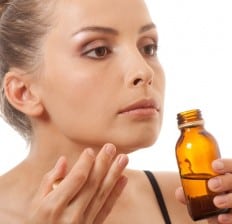 Aromatically – There is great evidence that essential oils are absorbed into the bloodstream when inhaled. The large amount of blood vessels in the lungs absorb the oils and then circulate them throughout the body.
Aromatically – There is great evidence that essential oils are absorbed into the bloodstream when inhaled. The large amount of blood vessels in the lungs absorb the oils and then circulate them throughout the body.
Using a diffuser can help you experience the benefits of essential oils. You can diffuse lavender to reduce stress, melaleuca to cleanse the air, wild orange to improve mood, frankincense for spiritual enlightenment and peppermint to improve focus and energy.
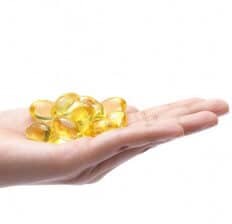 Ingestion – Essential oils can be used as a powerful form of medicine but it should be remembered that again, essential oils are powerful. Most essential oils are safe for internal use but a little bit goes a long way. Usually 1-3 drops is plenty mixed with water.
Ingestion – Essential oils can be used as a powerful form of medicine but it should be remembered that again, essential oils are powerful. Most essential oils are safe for internal use but a little bit goes a long way. Usually 1-3 drops is plenty mixed with water.
Oils like peppermint, lemon and frankincense have great internal benefits and can be taken with water. Other essential oils like clove and oregano need to be diluted and shouldn’t be taken internally for more than 1 week.
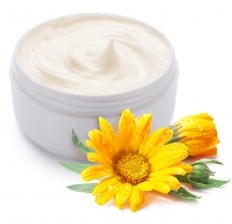 Personal Care – Today, the fastest way essential oils are being used is by making homemade DIY personal care products. This is an excellent away to take advantage of essential oils to improve your beauty, home and long term health.
Personal Care – Today, the fastest way essential oils are being used is by making homemade DIY personal care products. This is an excellent away to take advantage of essential oils to improve your beauty, home and long term health.
Some of the best DIY recipes to use essential oils with include: shampoo, body butter, toothpaste, bug spray, lip balm and household cleaner.
Best Carrier Oils For Aromatherapy
Essential oils are extremely small so they can pass through the skin and into the body quickly. But if you want to keep the oils on your skin and dilute them to create more gentleness on the skin you can combine them with carrier oils.
These larger oils that come from the fatty part of the plant can increase the length of time the essential oils stay on your skin and also prolong the aromatherapy effects.
Some people mistakenly think using carrier oils reduces the effectiveness of the oil but really it can be the opposite. Dilution increases the surface area of absorption and with certain oils can prevent sensitivities.
Common carrier oils include:
- Almond oil
- Avocado
- Coconut oil
- Jojoba oil
- Olive oil
- Pomegranate seed oil
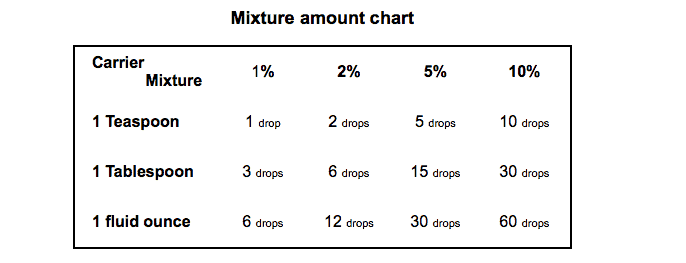
For most people I recommend 10% dilution which is 5 drops of oil per 1/2 teaspoon.
Essential Oils For Skin and Beauty
The skin and beauty industry is a billion dollar industry unfortunately it is filled with chemicals and hydrogenated oils that cause internal toxicity in the body.
The good news is you can create your own skin and beauty products that are more effective than any conventional product on the market. Here are some benefits of specific oils:
Calm irritated skin – lavender and roman chamomile
Reduce age spots – frankincense
Thicken hair – rosemary and sage
Natural SPF skin protection – helichrysum and myrrh
Improve acne – melaleuca (tea tree) and geranium
Here are some of my favorites DIY recipes for making personal care products:
Essential Oils For Hair Growth
Essential oils for hair loss can make a significant difference at stopping it in it’s tracks. Oils of rosemary, lavender and sage can all help naturally thicken hair by stimulating the hair follicles.
Clary sage and lavender support hair growth by balancing estrogen levels and rosemary essential oil works by inhibiting DHT (dihydroxy-testosterone) which stops hair loss. Here is how to naturally thicken hair with essential oils:
- Put 10 drops of rosemary oil and 5 drops of lavender oil different areas of your scalp
- Gently massage into scalp for 2 minutes
- Put a hot towel around your head and sit for 20 minutes
- Finally, wash hair with natural homemade shampoo
Also, try these homemade recipes: Rosemary Mint Shampoo and Coconut Lavender Shampoo.
Essential Oil Bug Spray
Bugs and mosquitos can cause big problems in certain areas of the world. These pests can ruin vacations, BBQ’s and special occasions. To keep bugs at bay you can makehomemade natural bug spray that works!
Unfortunately, most people turn to chemicals sprays like DEET that are highly toxic to the body instead of using all-natural mosquito repellent and essential oil bug sprays. Here are the top essential oils to repel insects:
- Lemongrass
- Eucalyptus
- Citronella
- Peppermint
- Clove
Rub or spray all over body to repel bugs.
Natural First Aid Kit
Having a homemade first aid kit on hand for the everyday wound, sting, sunburn, muscle pain or injury is always a good idea.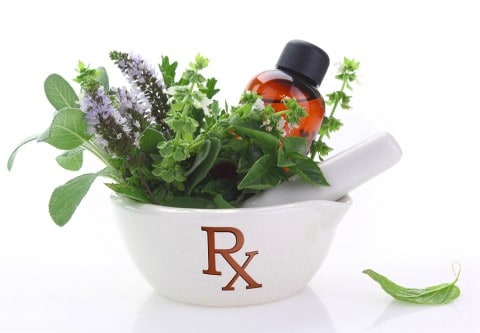
Essential oils are used widely as natural medicine but without the side effects of conventional drugs like aspirin and antibiotics.
Here are some of the most common essential oils everyone should have stored in their personal medicine cabinet:
+ Lavender – to heal burns, cuts, rashes, stings, reduce anxiety and help sleep after trauma.
+ Peppermint – to improve pain in joints, muscles, relieve digestive issues, reduce fevers, clear sinuses, improve asthma, bronchitis and relieve headaches.
+ Frankincense – anti-inflammatory, heal bruising, reduce scars, boost immunity and emotional well-being.
+ Melaleuca – anti-bacterial, anti-fungal, can be used to prevent and reduce infection and clean air of pathogens and allergens.
Other oils you may want to have on hand to makeover your medicine cabinet include: eucalyptus, oregano, and clove.
Essential Oils For Weight Loss
When it comes to losing weight, most everyone understands that improving diet and doing the right type of exercise can support weight loss.
But, often times people want an extra boost to help them reach their weight loss goals. Unfortunately, most people turn to stimulants and caffeine for fat loss rather than plant based medicine.
These 4 essential oils have been proven to support fat loss:
- Grapefruit oil contains d-limonene which is found in citrus peels. A study found that supplementing d-limonene improved metabolic enzyme levels.
- Peppermint oil has been shown to improve weight loss because it suppresses cravings and improves digestion.
- Cinnamon oil helps balance blood sugar levels which will assist in weight loss and improve diabetes.
- Ginger oil contains gingerol which has powerful anti-inflammatory properties and increases thermogenesis which boosts metabolism.
Essential Oil Contraindications
Because essential oils can act as a powerful form of natural medicine, there are a few instances where they are not recommended for usage:
Pregnancy – Basil, cinnamon, clary sage, clove, cypress, fennel, jasmine, juniper, marjoram, myrrh, rose, rosemary, sage and thyme.
In most cases, these oils are completely healthy but because they can effect hormones they are not recommended at this stage.
Heart medications (blood thinners) – Clary sage, cypress, eucalyptus, ginger, rosemary, sage and thyme.
Overall, aromatherapy is a great and inexpensive way to help promote healing, relaxation, and well-being without adverse side effects.
Essential Oil Quality
This is one of the most vital things you must know about essential oils… Not all essential oils are created equally. In fact, most of them are worthless to your health and often synthetic. When buying essential oils make sure they are certified pure therapeutic grade. If you want to order the brand I trust and personally use, email oils@draxe.com to order or learn where to buy them.
What are your favorite essential oils? How do you use them? Did you learn anything new in this essential oils guide?
Taken from – http://draxe.com/essential-oils-guide/ – 03/05/2016


